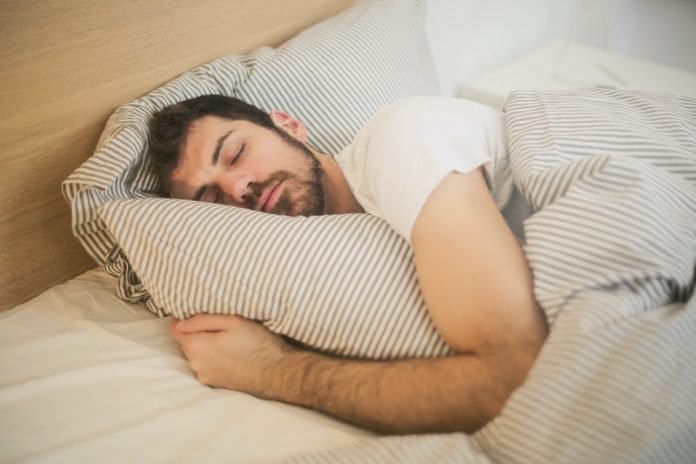
Is the ongoing pandemic helping or hurting our sleep? And how does sleep affect your immune system?
Deirdre Conroy, Ph.D., a psychologist and the clinical director of Michigan Medicine’s Behavioral Sleep Medicine Clinic, and Cathy Goldstein, M.D., M.S., addressed these issues plus the basics of sleep hygiene and sleep disorders in a recent live broadcast.
Sleeping well and reaping the benefits, especially during a pandemic
We spend about a third of our day sleeping, or at least we should to be fully rested.
And among the reasons to get your eight hours include promoting memory consolidation, regeneration and healing, and removing the harmful byproducts of metabolism that go on during the day, Goldstein says.
Shorting yourself on sleep can cause both short-term and long-term thinking and memory issues, decrease your alertness and possibly put yourself at higher risk of dementia and mood disorders.
When it comes to infection, people who haven’t slept enough may be more likely to get infected with a virus if exposed.
“Sleep before and after getting a vaccine is required for a good robust, appropriate immune response,” Goldstein says.
Although some people are dealing with insomnia right now, likely sparked by stress and uncertainty, others tell Goldstein and Conroy they are able to get more shut-eye right now.
“We’ve had a lot of patients have an improvement in their sleep” since switching to working from home during the pandemic, Goldstein says.
Being able to stay in bed a little later can bring your schedule more in line with your internal body clock or circadian rhythm.
Falling and staying asleep
“We’re not light switches,” Conroy reminds her patients. It’s important to have some quiet time in the evening to dim the lights, stop checking emails, and slowly reduce your level of alertness before you climb in bed.
“You can’t go immediately from work mode to sleep mode,” Goldstein says.
Waking up at night is one of the more common types of insomnia that Conroy addresses with her patients.
She urges people to learn deep breathing to try to re-initiate the sleep process. If you’re still awake after a half hour or so, try a quiet activity like reading a book in another room with a dim light until you get tired again, she says.
Tracking your sleep
Do you check your sleep score every morning on your smartwatch or other device?
Goldstein explains that these devices measure heart rate and motion activity, then use their algorithms to give you a score for sleep quality. They aren’t perfect, but they give us a cool opportunity to look at changes over time, Goldstein says.
If you’re using these devices to give you ideas about trends and to make changes in your behavior to improve your sleep, then keep going, she says.
But if checking the stats each morning makes you anxious and stressed, you may want to ditch the device.
Working the night shift
Working different shifts than the typical 8 a.m. – 5 p.m. schedule can influence both how we feel during our waking hours and how we sleep, Conroy says.
Part of that is because your body clock wants you to sleep during the night and be awake during the day.
That means even if you’re tired enough from work that you fall right asleep, it can be difficult to stay asleep all day when your body wants to wake up, Goldstein says.
The goal is to align the sleep schedule so that there isn’t a huge shift in sleep and wake times on work days compared to days off.
“We try and move the internal clock to match the external schedule,” Goldstein explains. And most people aren’t willing to stay nocturnal on days off when they want to spend time with loved ones, so a bit of creativity is required.
For example, after the last night shift of the week, some of Goldstein’s patients will take a quick nap during the day.
Then they’ll keep being a night owl on their days off so there’s a shared period of sleep seven days a week, even if it isn’t exactly the same on days on as it is on days off.
“Consistency is key,” Conroy says.
Mental health’s relationship with sleep
Sleep disturbances can sometimes be indicators of other mental health conditions, but sleeping poorly can also cause anxiety, so the relationship goes both ways, Conroy explains.
She helps her patients better understand the thoughts they’re having that relate to sleep so they can change them. She also recommends approaches like gratitude journals, and even suggests worrying on purpose.
Constructive worry involves taking time well before bed to write down the things that may keep you up at night so you don’t have to take the problems to bed with you, Conroy says.
If you wake up with that worry, you’ll know you already addressed it during a time you’re much more alert and capable than in the middle of the night.
If you care about sleep health, please read studies about pink noise may boost deep sleep, improve memory in older people and findings of 8 things can help you sleep well when you get older.
For more information about sleep and your health, please see recent studies about to sleep better, avoid these three things in your dinner and results showing that short sleep at night may signal heart disease.



